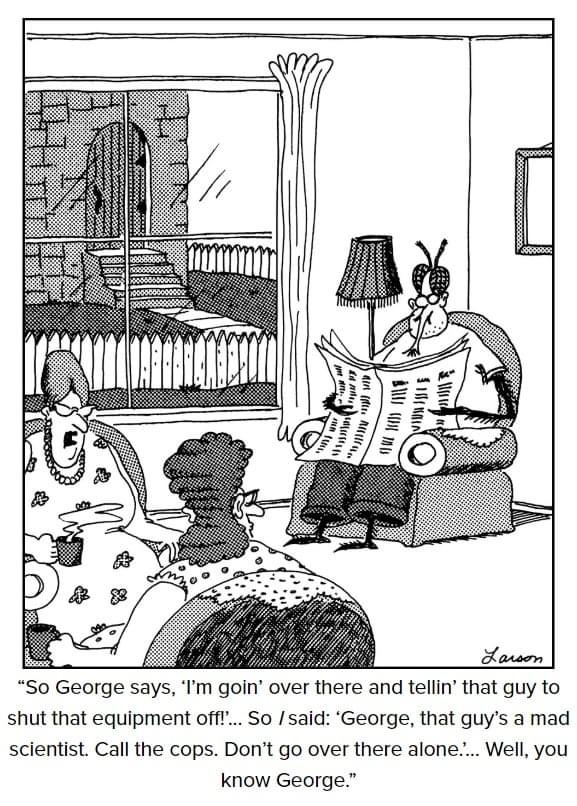
Mystics
The mystic is not somebody who says, “Look what I’ve experienced. Look what I’ve achieved.” The mystic is the one who says, “Look what love has done to me.”. . . There’s nothing left, but the being of love itself giving itself away as . . . the concreteness of who you simply are.—James Finley, Following the Mystics through the Narrow Gate
Lying
Do not lie to one another, seeing that you have stripped off the old self with its practices and have clothed yourselves with the new self, which is being renewed in knowledge according to the image of its creator. (vv. 9–10 NRSV)
Unfortunately, so many people live so much of their lives unaware of these things. Lying to one another does not mean telling untruths to each other; rather, it means projecting an image of yourself to other people that simply is not true. Most people do not intend to do this. They can’t help it. One’s outward image is a direct projection of his or her inward sense of identity and when this identity is built on things that are not true (i.e., anything other than the image of God), that individual’s outward image lies about who he or she most deeply is.
JD Walt
Prayer of Elderly
. . Sometimes I say to myself a little prayer in my advancing years, “God, help me to be the kind of old person young people want old people to be. Help me not just to talk like this, but help me to walk around like this and answer the phone like this and talk to my grandchildren like this.” We’re all trying to do our best here to walk the walk.
James Finley with Kirsten Oates, “Dialogue 1: The Ascent of Mount Carmel,
Reading the Gospels
At every step Jesus seemed to confuse his listeners. I’ve been reading the gospels a lot over the past year. A few chapters at a time. And Jesus is constantly confounding the expectations of everyone. Except those who are desperate for his healing. They expect him to heal them. But those who want him to overthrow Rome seem consistently disappointed and thrown off kilter. Of course, it was never his mission to overthrow Rome. At least not with armies and swords. The American church has never learned this lesson.
. I want you to imagine that Jesus is with you right now. Think about it. Imagine what that would feel like. Would you now think, feel, and talk about “the news” of the day the same way if he was sitting with you now.
Here’s the thing…He is.
So many of us, who identify as Christians are looking for life in the wrong place. We are looking for life in politics, work, money, sex, substances, power, body image, reputation, (kid’s) sports, and even doctrine. And it is making us sad and angry and full of anxiety. But life is only found in one place, the person of Jesus.
Matt Redmond
Being Moral
Morality is a very low bar, and if that’s what we are aiming for, our lives will hover back and forth just above and below this threshold. Virtue is simply good morals on steroids. Love, on the other hand, is the holy presence of Jesus Christ filling human beings together to the measure of all the fullness of God. This is the secret long hidden and now revealed. It’s not about aspiring to better behavior but becoming abandoned to Jesus.
And over all these virtues put on love, which binds them all together in perfect unity. (v. 14)
J D Walt
Healthy religion is always humble about its own holiness and knowledge. It knows that it does not know. The true biblical notion of faith, which balances knowing with not knowing, is rather rare today, especially among many religious folks who think faith is being certain all the time—when the truth is the exact opposite. Anybody who really knows also knows that they don’t know at all.
Richard Rohr
what might a more healthy relationship with the state look like?
One answer comes from “A Letter to Diognetus,” a piece of early Christian apologetics from the second century. In the letter, the author describes how Christians relate to the nation states in which they dwell:
Christians are indistinguishable from other men either by nationality, language or customs. They do not inhabit separate cities of their own, or speak a strange dialect, or follow some outlandish way of life. Their teaching is not based upon reveries inspired by the curiosity of men. Unlike some other people, they champion no purely human doctrine. With regard to dress, food and manner of life in general, they follow the customs of whatever city they happen to be living in, whether it is Greek or foreign.And yet there is something extraordinary about their lives. They live in their own countries as though they were only passing through. They play their full role as citizens, but labor under all the disabilities of aliens. Any country can be their homeland, but for them their homeland, wherever it may be, is a foreign country.
Richard Beck
The Storyteller
Sometimes the storyteller’s impact is minimal. He [Elie Wiesel]tells the story of a rabbi who before Passover sought to persuade his people to be generous for the poor. When he got home his wife said, “Nu, how was it?” “Did you accomplish anything?” He said, “Only half.” Thus, “I did not succeed in convincing the rich to give, but I managed to convince the poor to receive.” Quite a story there. Scot McKnight

View from the front porch
In a Jewish legend Solomon “knew the songs of birds and could interpret them.” A later Hasidic master was asked by a student how that could be, and he said, “When you know what your own soul is singing, you will also understand the songs of the bird.” Are those birds – ach, the warblers above all – singing something inherent, too, to who we are?
Although, I’ve always appreciated birds, in recent weeks my interest has increased. I discovered an amazing bird app which identifies bird calls. Of course the next step is bird feeders… two at the end of the porch. I am still awaiting my first feeder… 18 hours and counting. I suspect I have a lot to learn about bird feeders.
Furthermore, I apparently I do not understand what my own soul is singing… working on it.
STILL ON THE JOURNEY